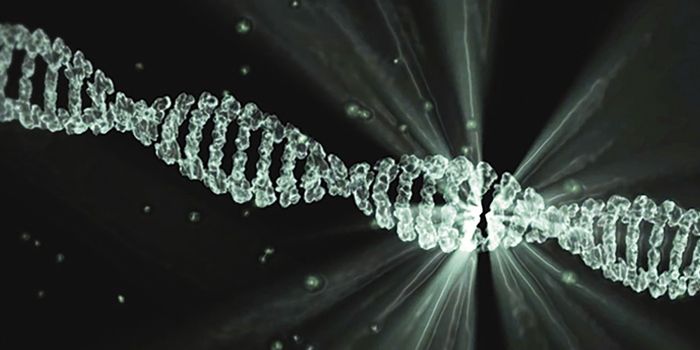It Only Takes One Gene For Virgin Birth in Honey Bees
Cape honey bees are found in South Africa, and while they look similar, they are reproductively different from other subspecies of honey bee. The eggs of Cape worker honey bees develop into females, unlike other honey bee workers that lay eggs that develop into males. Female Cape worker honeybees are also the only honeybees that can reproduce asexually. Researchers have now identified a gene that enables them to do so. The gene is on chromosome 11 and called GB45239. It's all that's needed for these virgin births. The findings have been reported in Current Biology.
"It is extremely exciting," said Professor Benjamin Oldroyd in the School of Life and Environmental Sciences. "Scientists have been looking for this gene for the last 30 years. Now that we know it's on chromosome 11, we have solved a mystery."
In honey bees, diploid females usually arise from sexual reproduction, while asexual reproduction gives rise to haploid males, a process known as arrheno-tokous parthenogenesis.
"Sex is a weird way to reproduce and yet it is the most common form of reproduction for animals and plants on the planet," said Oldroyd. "It's a major biological mystery why there is so much sex going on and it doesn't make evolutionary sense. Asexuality is a much more efficient way to reproduce, and every now and then we see a species revert to it."
Female Cape honey bees also have larger ovaries that activate more readily and can produce queen pheromones. Thus, they can assert dominance in a colony. This situation also leaves males without much of a role in the colony.
"Males are mostly useless," Oldroyd said. "But Cape workers can become genetically reincarnated as a female queen and that prospect changes everything. Instead of being a cooperative society, Cape honey bee colonies are riven with conflict because any worker can be genetically reincarnated as the next queen," Oldroyd explained. "When a colony loses its queen the workers fight and compete to be the mother of the next queen."
These characteristics also promote social parasitism, in which Cape bee workers invade the colonies of other bees, reproduce there and get the workers to start feeding their larvae. Thousands of commercial beehives are lost to this behavior every year in South Africa.
"This is a bee we must keep out of Australia," Professor Oldroyd said.
While we've known about these behaviors for decades, we now have a biological explanation. The research can also help us understand more about the animal kingdom.
"Further study of Cape bees could give us insight into two major evolutionary transitions: the origin of sex and the origin of animal societies," said Oldroyd.
More research will be needed to understand how this gene functions.
"If we could control a switch that allows animals to reproduce asexually, that would have important applications in agriculture, biotechnology and many other fields," Professor Oldroyd said. For instance, many pest ant species like fire ants are thelytokous, though unfortunately it seems to be a different gene to the one found in Capensis."
Sources: AAAS/Eurekalert! via University of Sydney, Current Biology










